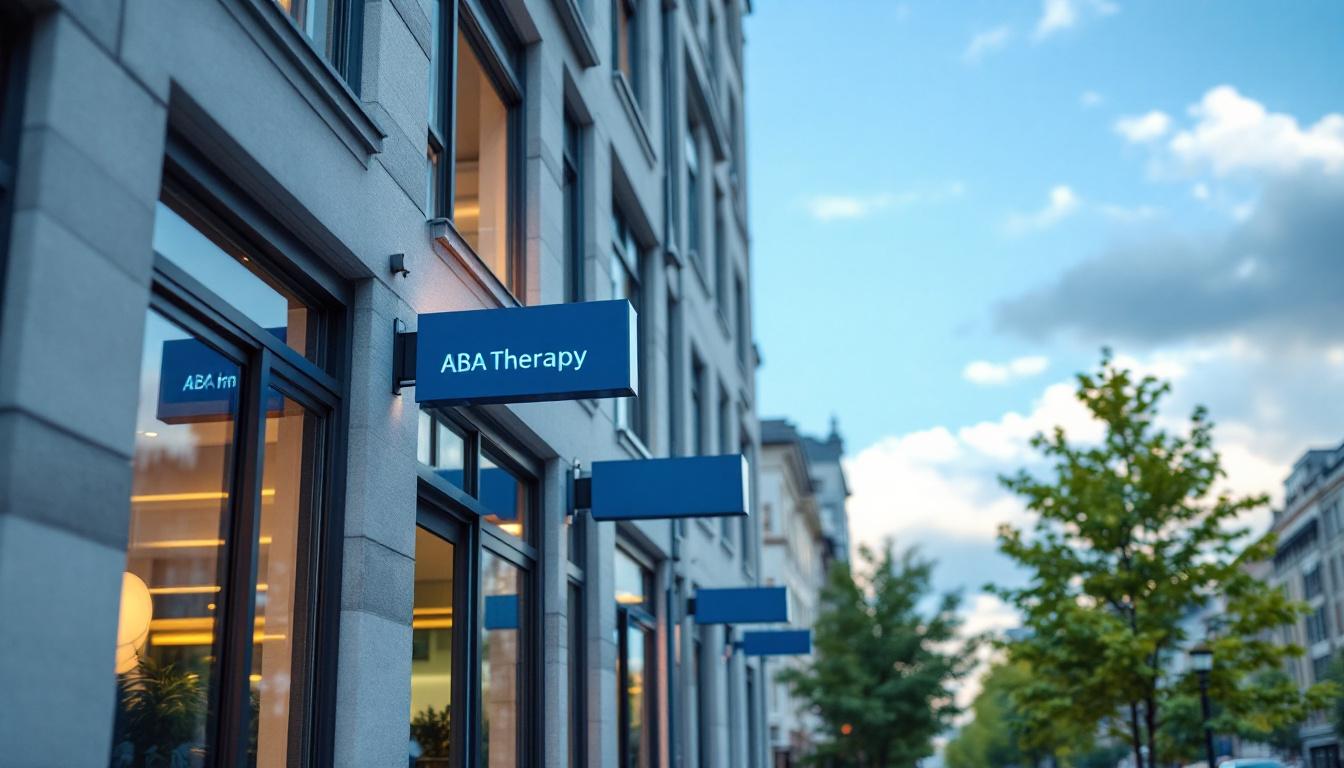RBT Certification Cost

The demand for qualified behavior analysts and technicians continues to surge as autism diagnoses increase and awareness of Applied Behavior Analysis (ABA) therapy grows. According to the Centers for Disease Control and Prevention, approximately 1 in 36 children in the United States has been identified with autism spectrum disorder, creating an unprecedented need for skilled professionals in this field.
If you're considering a career as a Registered Behavior Technician (RBT), understanding the complete cost structure is crucial for making an informed decision. This comprehensive guide breaks down every expense associated with RBT certification, from initial training to ongoing maintenance costs.
What is RBT Certification?
A Registered Behavior Technician (RBT) is a paraprofessional who practices under the close, ongoing supervision of a Board Certified Behavior Analyst (BCBA) or Board Certified Assistant Behavior Analyst (BCaBA). RBTs implement behavior-analytic services and collect data, but they cannot provide behavior-analytic services without supervision.
The RBT credential is administered by the Behavior Analyst Certification Board (BACB), which established rigorous standards to ensure quality service delivery in the field of behavior analysis. Since its inception in 2014, the RBT certification has become the gold standard for entry-level positions in ABA therapy.
Complete Breakdown of RBT Certification Costs
Initial Training Program Costs
The most significant expense in your RBT journey will be the initial 40-hour training program. The BACB requires all RBT candidates to complete this foundational training before taking the certification exam.
Training Program Options and Costs:
- Online Training Programs: $200 - $500
- In-Person Training Programs: $400 - $800
- College-Based Programs: $800 - $1,500
- Employer-Sponsored Training: $0 - $300 (often subsidized)
Online training programs represent the most cost-effective option, with popular providers offering comprehensive courses that meet BACB requirements. These programs typically include interactive modules, video demonstrations, and practice assessments.
In-person training programs cost more due to facility overhead and instructor costs but offer hands-on learning experiences and direct interaction with instructors. Many students find the face-to-face format more engaging and easier to follow.
College-based programs, often offered through community colleges or universities, tend to be the most expensive but may offer additional benefits such as continuing education units (CEUs) or college credit.
RBT Examination Fees
After completing your 40-hour training, you'll need to pass the RBT Competency Assessment, administered by Pearson VUE testing centers.
Examination Costs:
- Initial exam fee: $50
- Retake fee (if needed): $50 per attempt
- Rescheduling fee: $31 (if changed within 24 hours)
The exam consists of 85 multiple-choice questions, and candidates have 90 minutes to complete it. The passing score is determined through statistical analysis, but generally falls around 60-65% correct answers.
Background Check and Application Fees
Before receiving your RBT credential, you must complete a criminal background check and submit your application to the BACB.
Associated Costs:
- Background check fee: $30 - $50
- BACB application processing: Included in exam fee
The background check is conducted through the BACB's approved vendor and typically takes 5-10 business days to process. Certain criminal history may disqualify candidates from certification.
Ongoing Certification Maintenance Costs
RBT certification isn't a one-time expense. Maintaining your credential requires annual renewal and continuing education.
Annual Renewal Requirements:
- Annual renewal fee: $35
- Continuing education: 20 hours annually
- Continuing education course costs: $100 - $300 per year
The BACB requires RBTs to complete 20 hours of continuing education each year to maintain their certification. These courses must be provided by BACB-approved continuing education providers and cover topics relevant to behavior analysis.
Additional Potential Costs
Several optional or situational expenses may apply to your RBT certification journey:
Professional Development:
- ABA conferences and workshops: $200 - $800 annually
- Professional association memberships: $50 - $150 annually
- Additional specialized training: $100 - $500
Technology and Materials:
- Data collection apps and software: $10 - $50 monthly
- Professional books and resources: $100 - $300
- Laptop or tablet for data collection: $300 - $800
Cost Comparison by Training Provider Type
Online Training Providers
Online training has become increasingly popular due to its flexibility and affordability. Major providers include:
- Behavior Development Solutions: Approximately $295
- CARD eLearning: Around $350
- Florida Institute of Technology: About $425
These programs typically include lifetime access to materials, customer support, and exam preparation resources.
Traditional Classroom Training
In-person training offers structured learning environments and direct instructor interaction:
- Community colleges: $600 - $1,200
- Private training companies: $500 - $900
- Healthcare organizations: $400 - $700 (often employer-sponsored)
Employer-Sponsored Training Programs
Many ABA companies offer training programs for new hires:
- Cost to employee: $0 - $200
- Employment commitment: Usually 1-2 years
- Additional benefits: Often includes mentorship and guaranteed employment
Geographic Cost Variations
RBT certification costs can vary significantly based on your location:
High-Cost Areas (Major metropolitan areas):
- California: $600 - $1,000 total initial cost
- New York: $550 - $950 total initial cost
- Massachusetts: $500 - $900 total initial cost
Moderate-Cost Areas:
- Texas: $400 - $700 total initial cost
- Florida: $350 - $650 total initial cost
- Ohio: $300 - $600 total initial cost
Lower-Cost Areas:
- Rural areas: $250 - $500 total initial cost
- Smaller cities: $300 - $550 total initial cost
Financial Assistance and Funding Options
Scholarships and Grants
Several organizations offer financial assistance for RBT training:
- Behavior Analyst Certification Board: Limited scholarships available
- State vocational rehabilitation services: May cover training costs
- Local autism organizations: Often provide training scholarships
- Workforce development programs: May include ABA training funding
Employer Sponsorship
Many ABA companies invest in training new employees:
- Full sponsorship: Company pays all training and certification costs
- Partial sponsorship: Company reimburses costs after employment period
- Tuition reimbursement: Company reimburses costs over time
Payment Plans
Most training providers offer flexible payment options:
- Monthly payment plans: Spread costs over 3-6 months
- Early bird discounts: 10-20% off for early registration
- Group discounts: Reduced rates for multiple registrants
Return on Investment: RBT Salary Expectations
Understanding the financial return on your RBT certification investment is crucial for decision-making.
National Average RBT Salaries:
- Entry-level: $32,000 - $38,000 annually
- Experienced (2+ years): $38,000 - $45,000 annually
- Specialized settings: $40,000 - $50,000 annually
Hourly Rates:
- Starting rate: $15 - $20 per hour
- Experienced: $18 - $25 per hour
- Premium markets: $20 - $30 per hour
Based on these salary ranges, most RBTs recover their initial certification investment within 2-4 months of employment.
Cost-Saving Strategies
Early Planning
- Research multiple providers: Compare costs and features
- Look for promotions: Many providers offer seasonal discounts
- Consider timing: Some employers hire in cycles and may offer training
Maximizing Value
- Choose comprehensive programs: Ensure training includes exam preparation
- Seek employer partnerships: Some employers have preferred training partnerships
- Utilize free resources: BACB provides free study materials and practice tests
Long-term Cost Management
- Stay current with renewals: Avoid lapse fees and re-certification costs
- Seek employer-sponsored continuing education: Many companies provide free CE opportunities
- Join professional organizations: Access to discounted continuing education
Hidden Costs to Consider
Transportation and Time Costs
- Exam site travel: May require travel to testing centers
- Training venue costs: Parking, transportation for in-person training
- Time investment: 40+ hours of training plus study time
Technology Requirements
- Reliable internet: Essential for online training
- Updated computer/device: Some platforms have specific requirements
- Backup technology: Ensure access during critical training periods
Professional Presentation
- Professional attire: Required for many ABA positions
- Background check delays: May delay employment start dates
- State-specific requirements: Some states have additional requirements
State-Specific Considerations
Licensing Requirements
Some states have additional requirements beyond RBT certification:
- State licensing: May require additional fees and training
- Background check variations: State-specific background check requirements
- Continuing education differences: Some states require additional CE hours
Market Demand Factors
- High-demand states: May offer signing bonuses and higher salaries
- Competitive markets: May require additional certifications or training
- Rural vs. urban: Significant variation in opportunities and compensation
Future Cost Considerations
Career Advancement
Many RBTs pursue advanced certifications:
- BCABA certification: $1,500 - $3,000 in additional training and fees
- BCBA certification: $10,000 - $25,000 for master's degree and supervision
- Specialized certifications: $500 - $2,000 for additional credentials
Continuing Education Trends
The field of ABA continues to evolve, potentially impacting future costs:
- Technology integration: May require additional training in new platforms
- Specialized populations: Growing demand for specialized training
- Regulatory changes: Potential changes in certification requirements
Making the Financial Decision
Cost-Benefit Analysis Framework
Consider these factors when evaluating RBT certification costs:
- Total initial investment: Include all upfront costs
- Ongoing maintenance costs: Factor in annual renewal and CE costs
- Opportunity cost: Consider alternative career paths and their requirements
- Career growth potential: Evaluate long-term earning potential
- Job market demand: Research local market conditions
Break-Even Analysis
Most RBT candidates break even on their investment within 3-6 months of employment, assuming:
- Average starting salary of $35,000 annually
- Total initial investment of $600
- Full-time employment (40 hours per week)
Conclusion
The total cost of RBT certification typically ranges from $300 to $1,000 for initial certification, with annual maintenance costs of approximately $150-$350. While this represents a significant investment, the growing demand for qualified behavior technicians and competitive salaries make RBT certification a financially sound career choice for many individuals.
The key to minimizing costs while maximizing value lies in careful research, strategic planning, and taking advantage of available financial assistance programs. With proper planning, the investment in RBT certification can provide a strong foundation for a rewarding career in applied behavior analysis.
Whether you choose online training for affordability, in-person training for hands-on experience, or employer-sponsored programs for guaranteed employment, the RBT certification opens doors to meaningful work helping individuals with autism and other developmental disabilities achieve their full potential.

























.jpg)











































































